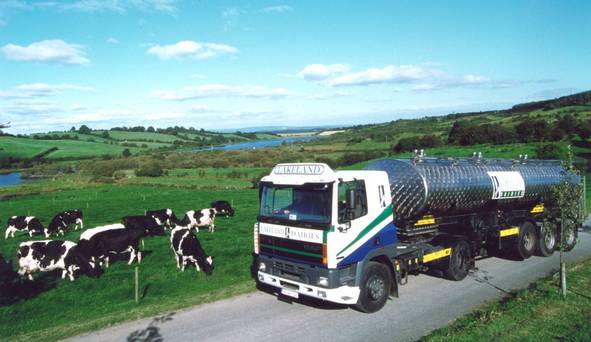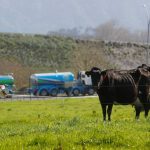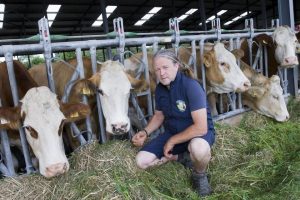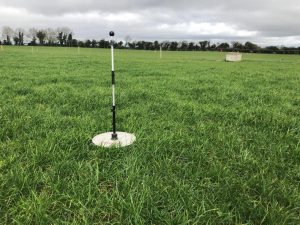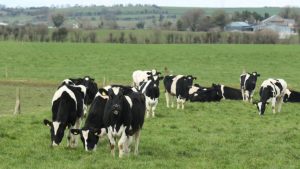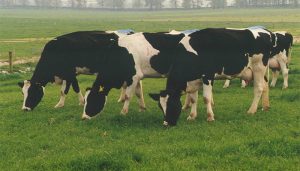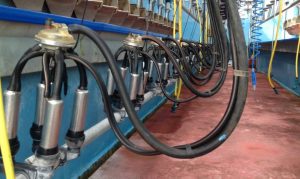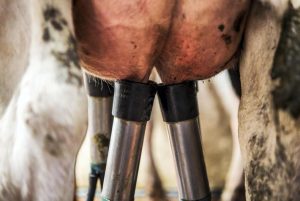
There is a sad irony to the predicament facing dairy farmers in the North, many of whom are of a staunchly Unionist persuasion.
On one hand they have marched themselves up the cul-de-sac of Brexit where they finally break free from the shackles of EU officialdom, with or without a resulting hard Border.
By default, they and every other Brexiteer is giving the rest of Ireland the two fingers, since this push for more political sovereignty completely disregards the cost that it inflicts on their nearest neighbours.
But Northern dairy farmers will be more aware than most Leavers of the economic folly of these actions. Over the last two decades their dairy output has jumped 50pc on the back of what one industry source described as “having jam on both sides of their toast”.
On one hand they’ve been able to lorry milk and beef into the UK under the banner of the Union Jack and Red Tractor logo, ensuring that they could avail of every premium going for local produce.
On the other hand they have been able to ‘export’ an additional 800 million litres of milk across the Border to be marketed around the world in high value sports nutrition and infant formulas under the Irish tricolour and Origin Green logo.
Food economist Ciarán Fitzgerald has shown how dairying generates more prosperity in rural Ireland than almost any other export business.
His analysis concluded that 90pc out of every euro (or pound) exported by the dairy sector is reinvested back into the local economy. This contrasts with just 10pc from multinational businesses.
So the £208m of milk sales that Northern Ireland sends for processing south of the Border is worth nearly £190m to the Northern economy.
If there’s a no-deal Brexit, a tariff that would almost double the price of Northern Irish milk coming south would halt exports overnight.
The Ulster Farmers Union (UFU) president, Ivor Ferguson claims that the North could handle the extra volumes for about four weeks.
The next best bet would be shipping it over to England, but that would be costly in terms of transport and probably ruinous in terms of returns.
Hence the BBC’s conclusion that Northern dairy farmers could be facing a cull of at least 15pc of their dairy herds.
And yet the denial is on-going. The very next day the UFU were dismissing the suggestion on the rather tenuous basis that they didn’t know who was the source of the figures.
In a radio interview, Mr Ferguson added that the UK government would “have to step up and pay the tariff. We can’t see Westminster letting our economy flag.”
However unlikely the prospect of UK tax-payers covering the export taxes on milk exports to the Republic, that’s only half the battle.
Even if Northern Irish milk was available to Southern processors at reasonable prices, the veterinary and phyto-sanitary checks at the Border may well stymie any hope of getting a highly perishable product to the processing plant in time.
The UFU president also appears to be clinging to the notion that Irish processors will be crying out for Northern milk to fill the gap, when the reality is that every milk processor south of the Border needs every bit of extra processing capacity they can get their hands on.
Retaliation
Doubtless, a tit-for-tat spat would ensue with retaliatory tariffs on products like Irish cheddar exports into the UK.
Over 20 years ago I enrolled in an ag college in Antrim. I’ll never forget the shock I got when I realised how deep the cultural divide still was between the Protestant and Catholic communities.
Rather than tough out my new-found status as a ‘taig’, I left after just one year to continue my farming education in UCD. We’re all hard-wired to take the easiest route through life.
Trade and money move the same way. If Brexiteers put barriers between us and them, trade will figure out new routes. Or else it gradually withers and dies.
The all-island economy that has grown up around the food sector is working for everybody.
There’s 400,000 Northern lambs annually slaughtered in the South, while 500,000 Southern pigs head North for processing. Notions of an all-island agri-backstop while the rest of the economy has to deal with a Border sound like wishful thinking to me.
Some may call this ‘project fear’. I think it’s more like project reality.
